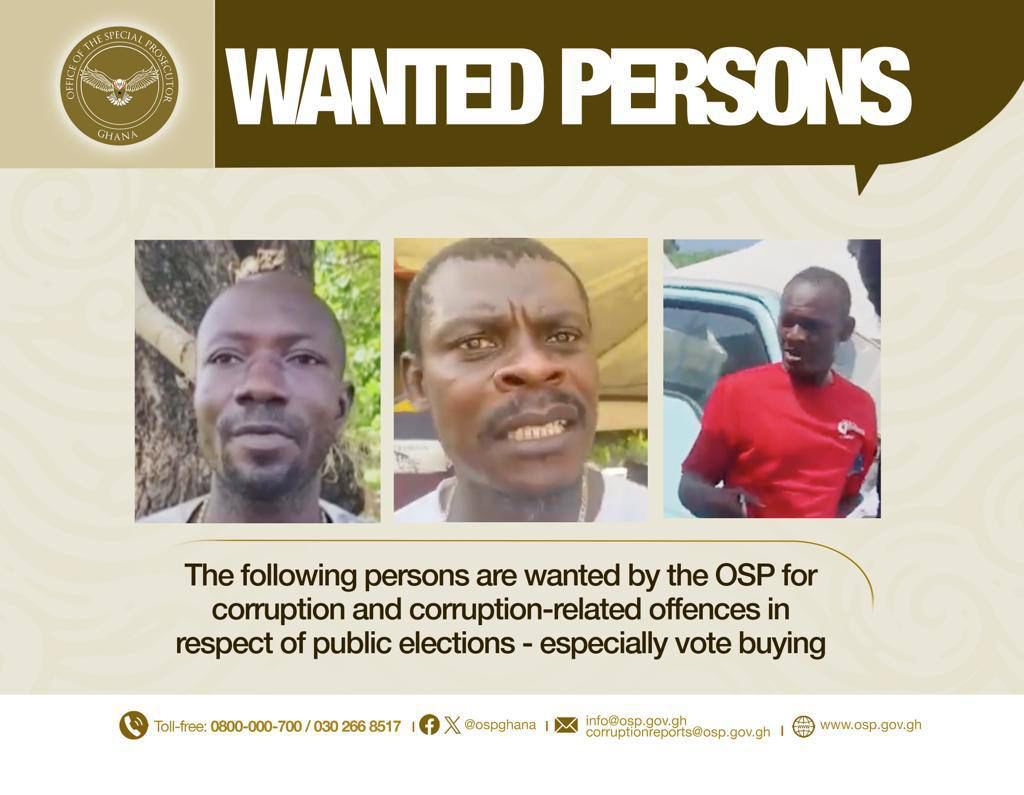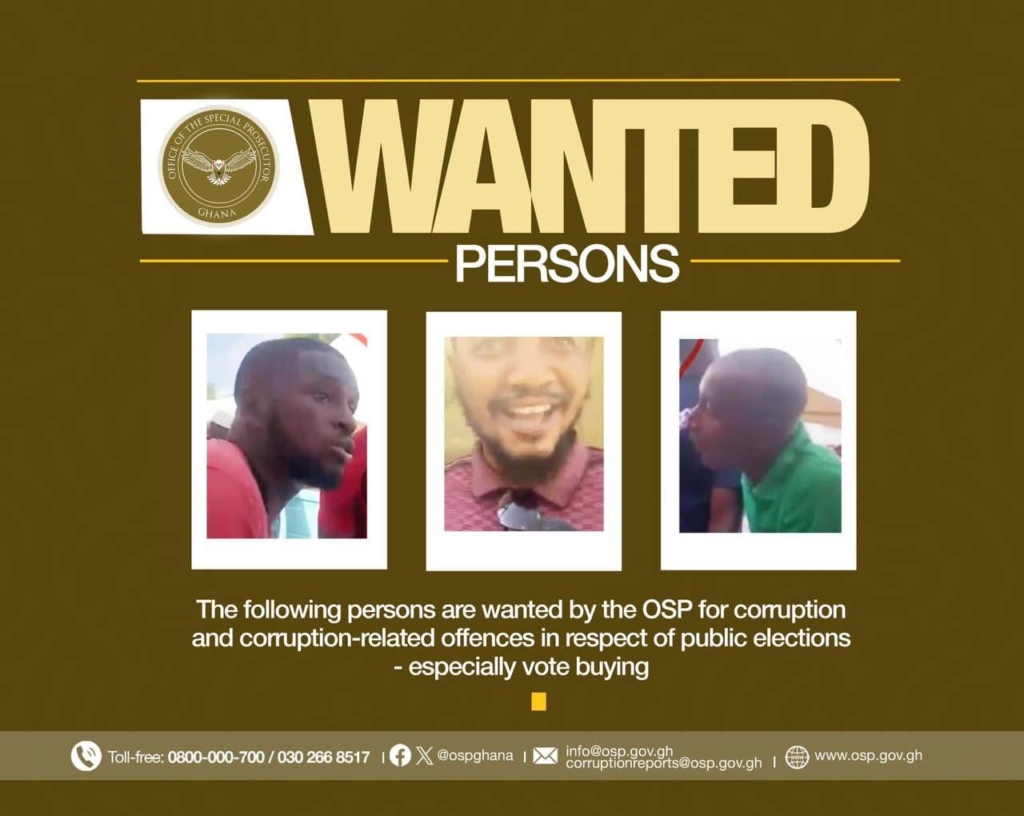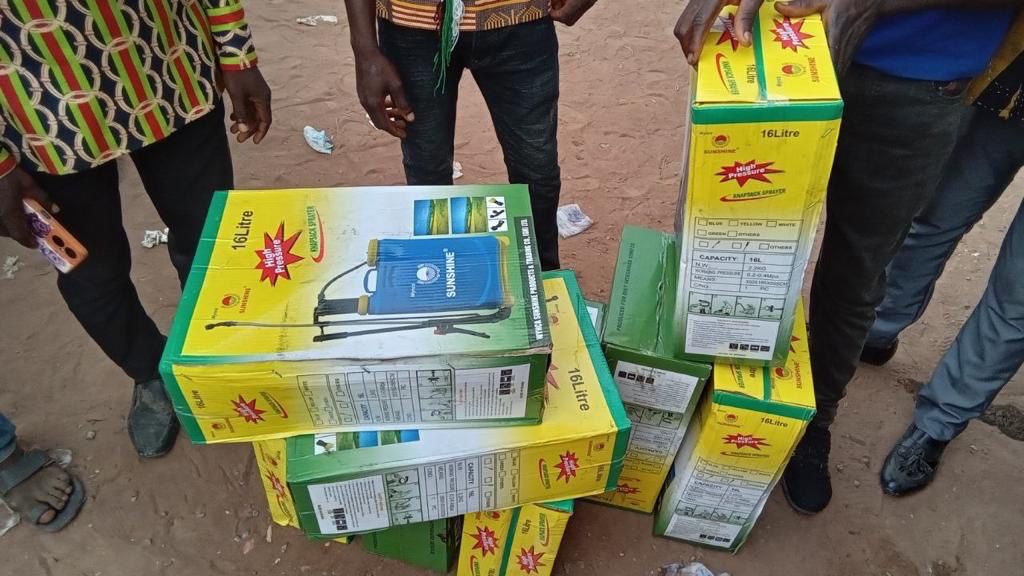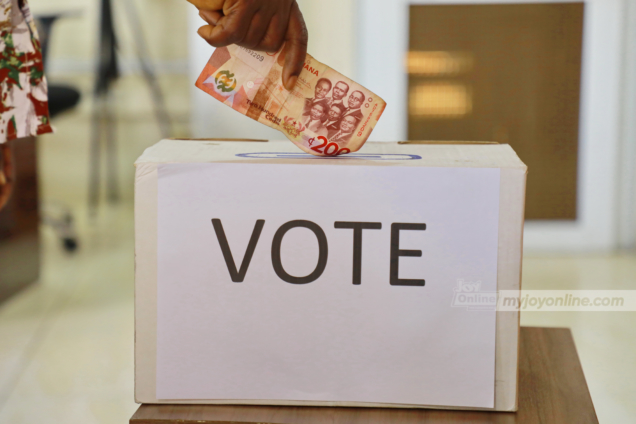Ghana’s political space has witnessed widespread instances of vote-buying during internal party contests and general elections.
The country's two major political parties, the governing New Patriotic Party (NPP) and the National Democratic Congress (NDC) have been captured in suspected attempts to induce voters during internal and external elections.
Vote buying is generally viewed as a purely economic exchange in which a voter sells his or her vote to the highest bidder.

In such attempts, the giver hopes to produce instrumental and normative compliance to successfully gear recipients to change their electoral behavior in exchange for tangible rewards.
While the two major political parties continue to preach against corruption in Ghana, it has become a common act to induce votes during internal and external elections.
The NDC Presidential and Parliamentary primaries for election 2024 witnessed instances where delegates were seen rushing for cash at Ejura Sekyeredumase during the entry of parliamentary aspirant, Juliana Kinang Wassan.
Her infamous act caught the attention of the Office of the Special Prosecutor. She was invited to aid in investigating her on corruption and corruption-related offences.
During the Kumawu and Assin North by-elections, both the NDC and the NPP were accused of inducing voters to influence their votes.
The NPP's Presidential Primary also witnessed an intensive display of cash from leading candidates to influence the votes of delegates.
The widespread accusation of money sharing was confirmed by Sammy Awuku, Campaign Manager for Dr. Mahamudu Bawumia.

But speaking on the Probe with Emefa Apawu, Mr. Awuku said the alleged 400 cedis distributed to the delegates by his candidate was not to influence their votes.
At the just-ended NPP parliamentary primary in orphan constituencies, delegates were seen displaying cash purported to have come from some aspirants.
At Ejura Sekyeredumase, some delegates refused to cast their vote if aspirants failed to induce them.
Some individuals captured in JoyNews' reports during the just-ended NPP primaries in orphan constituencies are being pursued by the OSP for engaging in acts of corruption and corruption-related offenses.

Speaking to JoyNews on the widespread practice, the fundraising manager at Ghana Integrity Initiative, Michael Boadi, said there is a need for legislation to criminalize vote-buying in the country.
Article 33(1) of the Representation of People Law, 1992 provides that a person commits the offences of bribery if he/she makes a gift, or provides something of value to a voter to induce the vote in a certain way.
This, if tenaciously adhered to, will no doubt launch Ghana into an enduring democratic process.
But, if the leading political actors continue to encourage and indulge in vote-buying, the practice will dent the true democratic governance in Ghana.
Latest Stories
-
Martin Kpebu rallies youth to take over the country
3 minutes -
The 2026 NPP Presidential Primary
11 minutes -
Trump announces air strikes on three nuclear sites in Iran
2 hours -
TESCON SD Dombo University condemns Stephen Amoah’s religious comment
3 hours -
Former SWAG President Ackah passes on
4 hours -
Maison Yusif unveils 2 new fragrances, opens flagship store in Accra
4 hours -
GOC, NSA commemorate International Olympic Day in Accra
4 hours -
Kalsoume Sinare, Namoale, 13 others land ambassadorial roles under Mahama
4 hours -
Photos: President Mahama arrives in Abuja for 67th ECOWAS Heads of State Summit
5 hours -
First batch of pilgrims from Mecca arrives in Tamale
5 hours -
Mahama appoints 15 new Ambassadors and High Commissioners
5 hours -
2 killed, three injured in tipper truck-taxi crash on Ntotroso-Kenyasi road
5 hours -
Heavy rain caused building collapse at Kotokuraba’s London Bridge area – Police
5 hours -
If religion was a factor, I would’ve stepped aside – Dr Bawumia warns against tribal politics in NPP
6 hours -
Okada rider survives brutal machete attack in Boinso, suspect arrested
6 hours

